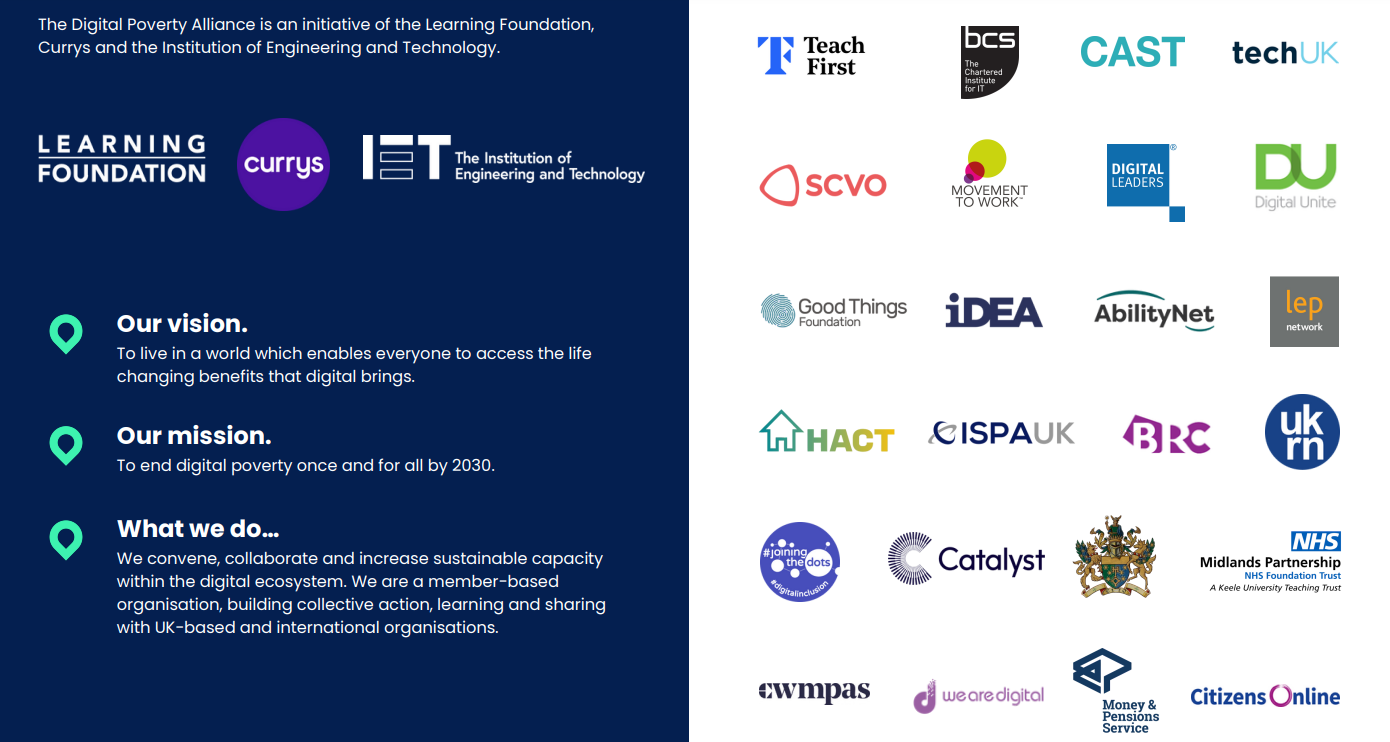Digital Poverty Alliance: National Delivery Plan 2023
The integration of digital technologies into so many aspects of our lives has completely transformed culture and society but is not yet fully inclusive.
The COVID-19 pandemic highlighted how much we have come to rely on the internet to accomplish everyday tasks: from connecting with family and friends to studying for exams and working from home. The pandemic also highlighted that the benefits and opportunities of digital access were not evenly distributed across society. This inequality is not limited to the availability of devices, connectivity, and skills but also the extent to which individuals can fully utilise the online world to connect, engage, and unlock new opportunities.
Over time, the accelerating pace of technological change will only intensify the need to solve the problem of digital exclusion. This is why the Digital Poverty Alliance have produced the National Delivery Plan which sets out a roadmap for how we can end digital poverty by 2030. Overall, the UK has a very strong foundation to build upon when it comes to our collective digital inclusion infrastructure. What is needed, however, is greater political leadership and investment to ensure that solutions can be scaled and sustained over the long-term.
The Digital Poverty Alliance plan sets out a comprehensive list of areas where action is needed. This document is based around 6 missions to end digital poverty by 2030. The six missions are:
- Increase awareness across society about the need for sustainable and strategic action to end digital poverty.
- Ensure affordable connectivity and guarantee full digital access for those in need.
- Improve standards of accessibility, safety, and inclusiveness across all digital products and services.
- By 2030, significantly reduce the proportion of individuals without essential digital skills, and ensure the sustainability and expansion of these skills in response to changing technologies and needs.
- Enhance knowledge and understanding of digital poverty among all stakeholders, including citizens, governments, and the public and private sectors, through the development and utilisation of research.
- Increase local capacity to provide joined-up digital inclusion support to individuals and communities.
While digital poverty can be measured and quantified in different ways, millions of people in the UK are certainly affected by it. Ultimately, ending digital poverty will not be achieved through a single policy response, but a range of responses are needed which are adapted to social, economic, and environmental conditions.


